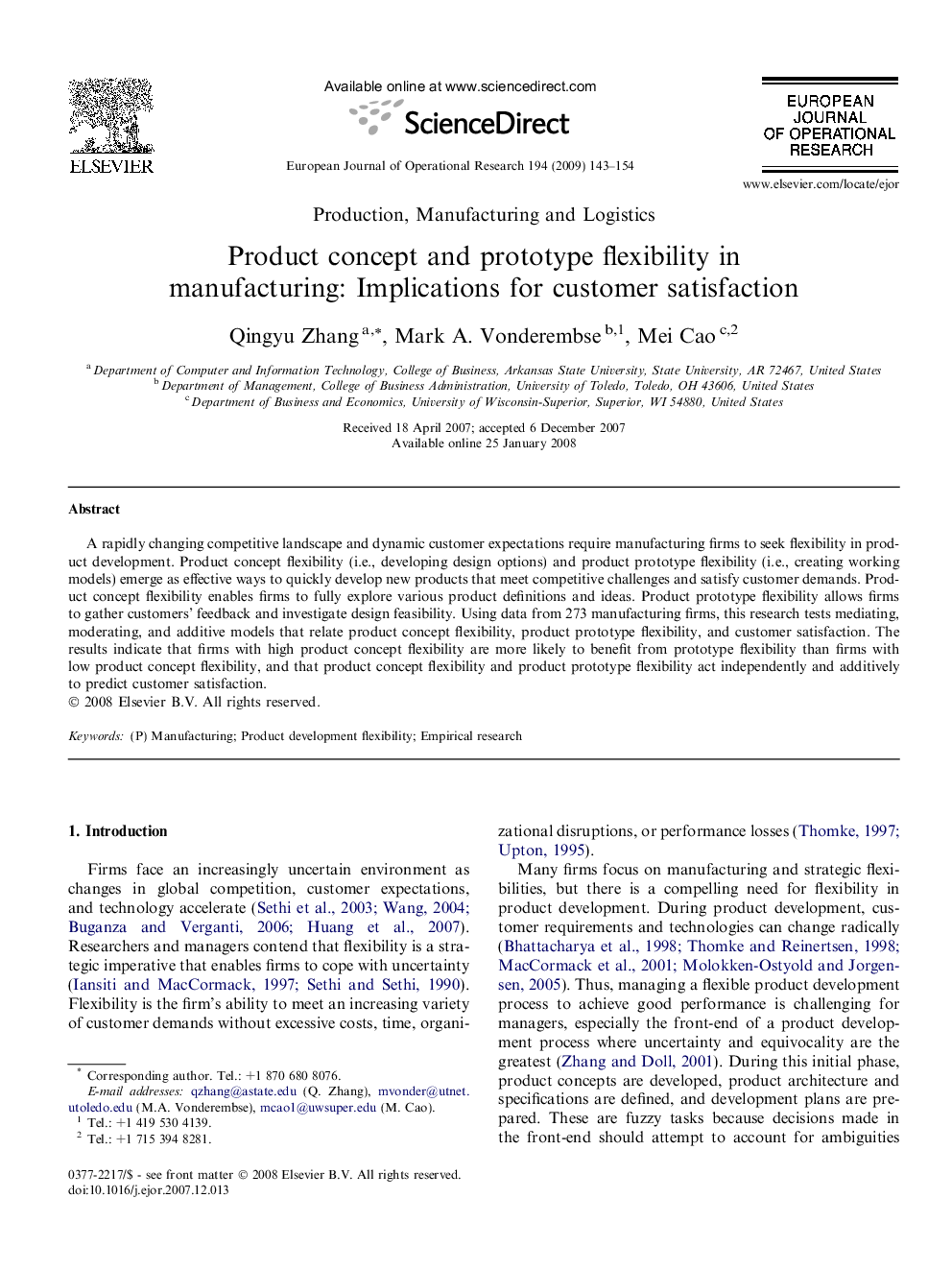| Article ID | Journal | Published Year | Pages | File Type |
|---|---|---|---|---|
| 477374 | European Journal of Operational Research | 2009 | 12 Pages |
A rapidly changing competitive landscape and dynamic customer expectations require manufacturing firms to seek flexibility in product development. Product concept flexibility (i.e., developing design options) and product prototype flexibility (i.e., creating working models) emerge as effective ways to quickly develop new products that meet competitive challenges and satisfy customer demands. Product concept flexibility enables firms to fully explore various product definitions and ideas. Product prototype flexibility allows firms to gather customers’ feedback and investigate design feasibility. Using data from 273 manufacturing firms, this research tests mediating, moderating, and additive models that relate product concept flexibility, product prototype flexibility, and customer satisfaction. The results indicate that firms with high product concept flexibility are more likely to benefit from prototype flexibility than firms with low product concept flexibility, and that product concept flexibility and product prototype flexibility act independently and additively to predict customer satisfaction.
